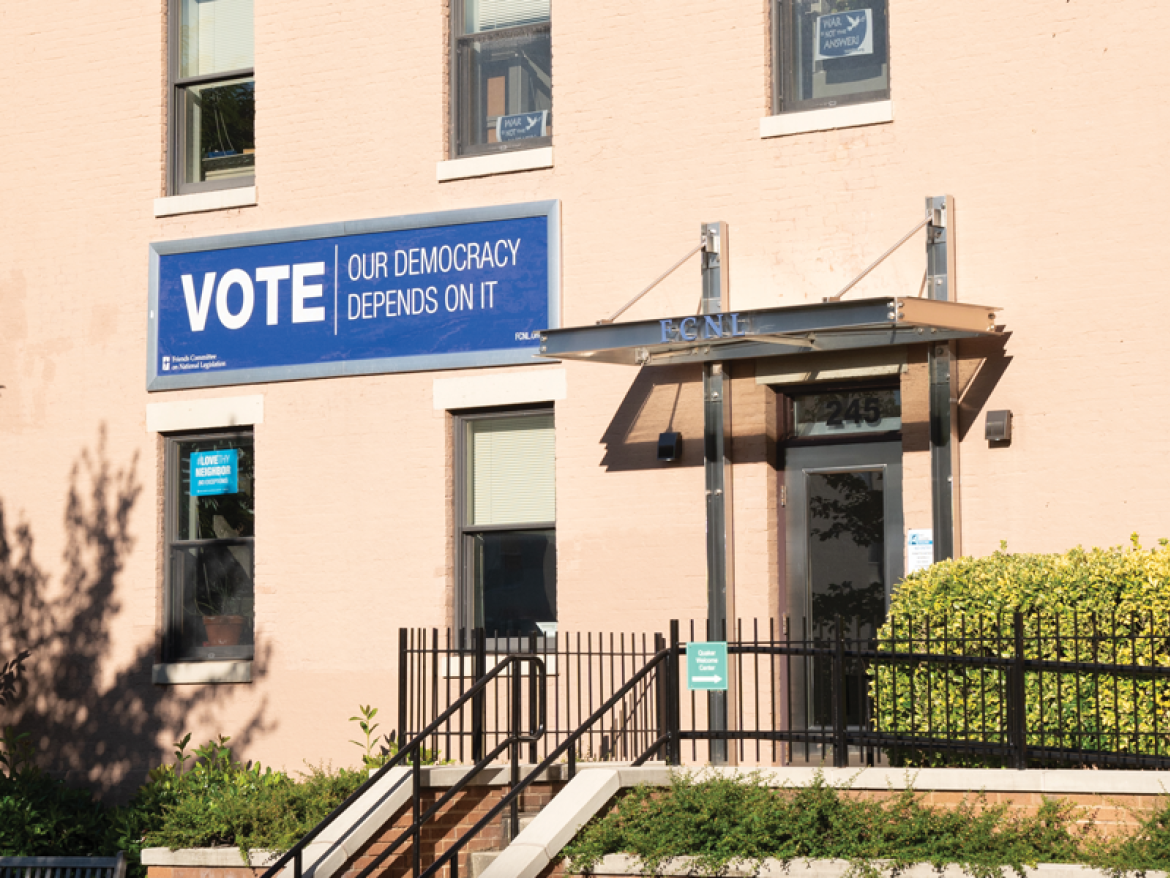Free and fair elections are the bedrock of our democracy. Yet for most of the history of our country, voting was a privilege that could easily be revoked for nothing more than the color of one’s skin.
Then came the Voting Rights Act of 1965. This landmark legislation secured the right to vote for Black people and other people of color throughout the country, especially in the South.
FCNL’s lead voting rights lobbyist, José Woss, describes it as “a stop to the vestiges of racism in our voting system.” Now, 55 years after its passage and just months before one of the most critical elections in modern history, the Voting Rights Act remains as important as ever.
Since its inception in 1943, FCNL has been an ardent support of voting rights.
Since its inception in 1943, FCNL has been an ardent support of voting rights. FCNL’s guiding set of principles, The World We Seek, states: “Our democracy can live up to its potential only if the government … safeguards the integrity of the voting process without raising unnecessary barriers.”
But despite the enormous progress enabled by the Voting Rights Act, free and fair elections are under growing threat. A core tenet of the legislation was the implementation of “preclearance” provisions. As Woss explained, these required the attorney general or federal courts to preapprove new voting laws in jurisdictions with a history of racial voter suppression.
The 2013 Supreme Court case of Shelby v. Holder, however, knocked these provisions down and shifted the burden to the people. Now, the only vehicle for overturning a discriminatory voting law is through long and costly legal court cases.
The VRAA is simply too important to let slide.
Fortunately, Congress has an opportunity to address this glaring regression. The John Lewis Voting Rights Advancement Act (VRAA) (H.R. 4/S.4263), introduced by Rep. Terri Sewell (AL-7) and Sen. Pat Leahy (VT), would restore preclearance provisions. This would stop discriminatory voting laws before they can go into effect. The legislation has not been received equally in both chambers of Congress. “The House passed the VRAA already, which is really important, but the Senate is unlikely to take action on it,” said Woss.
FCNL lobbyists and advocates will continue to push for its passage. The bill is simply too important to let slide, especially as attacks on voting rights continue amid the pandemic. “We have states like Texas, where you need an excuse to vote by mail, places like Georgia where they’re closing polling places left and right. We’re seeing a worsening of voter suppression.”
Passing the Voting Rights Act in 1965, was a landmark in ensuring that all Americans can exercise their right to vote. As we approach the November elections, the coming months will serve as a critical turning point in the continuing voting rights struggle.

